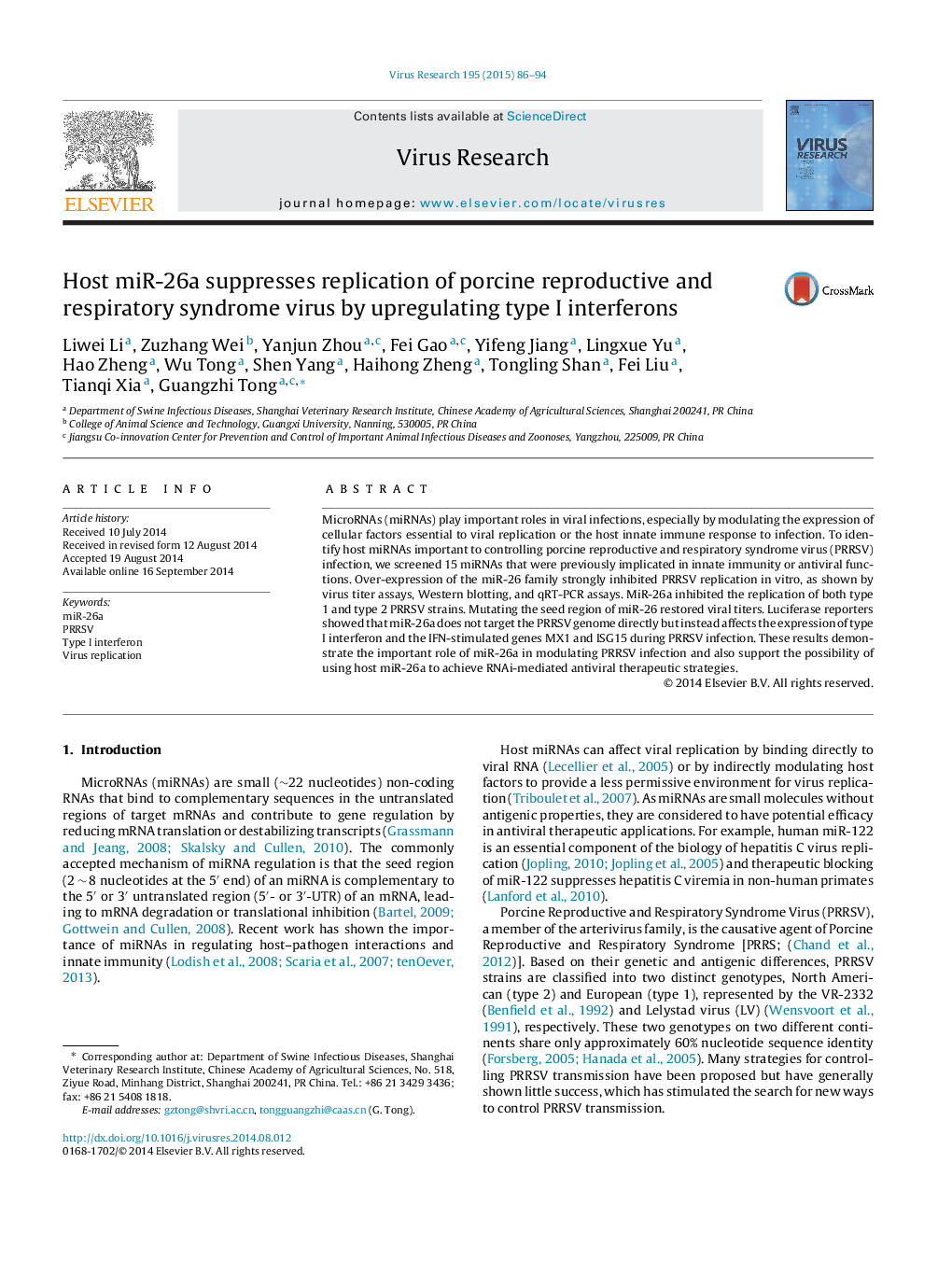| Article ID | Journal | Published Year | Pages | File Type |
|---|---|---|---|---|
| 3428350 | Virus Research | 2015 | 9 Pages |
•Over-expression of the miR-26 family strongly inhibited PRRSV replication in two PRRSV genotypes in a dose-dependent manner.•Luciferase reporter gene assay showed miR-26a does not target PRRSV genome.•Over-expression of miR-26a increases the expression of type I IFN and the IFN-stimulated genes MX1 and ISG15 during PRRSV infection.
MicroRNAs (miRNAs) play important roles in viral infections, especially by modulating the expression of cellular factors essential to viral replication or the host innate immune response to infection. To identify host miRNAs important to controlling porcine reproductive and respiratory syndrome virus (PRRSV) infection, we screened 15 miRNAs that were previously implicated in innate immunity or antiviral functions. Over-expression of the miR-26 family strongly inhibited PRRSV replication in vitro, as shown by virus titer assays, Western blotting, and qRT-PCR assays. MiR-26a inhibited the replication of both type 1 and type 2 PRRSV strains. Mutating the seed region of miR-26 restored viral titers. Luciferase reporters showed that miR-26a does not target the PRRSV genome directly but instead affects the expression of type I interferon and the IFN-stimulated genes MX1 and ISG15 during PRRSV infection. These results demonstrate the important role of miR-26a in modulating PRRSV infection and also support the possibility of using host miR-26a to achieve RNAi-mediated antiviral therapeutic strategies.
